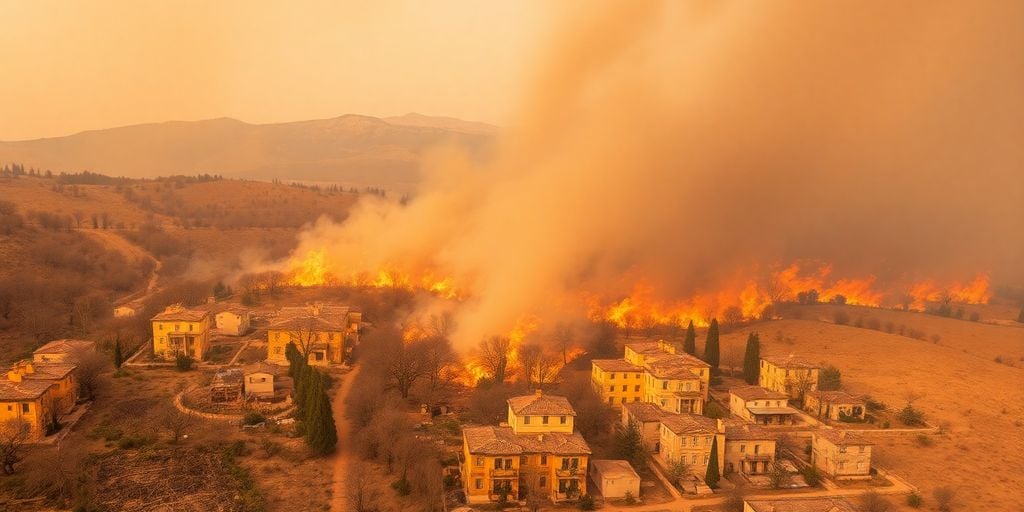A severe heatwave is currently scorching Greece and the Balkan region, leading to dangerous conditions, including widespread wildfires and health advisories. Temperatures are soaring, prompting authorities to implement work restrictions and close popular tourist sites to protect citizens and visitors from the extreme heat. The prolonged dry and hot weather is exacerbating the risk of fires across the already parched landscape.
Record-Breaking Temperatures Grip the Balkans
Across the Balkan Peninsula, temperatures have reached unprecedented levels, with Serbia recording its hottest day since the 19th century. Meteorologists are forecasting highs of up to 40 degrees Celsius (104 degrees Fahrenheit) in the coming week. This intense heat has led many to seek refuge in cooler mountainous areas or bodies of water, as seen with tourists flocking to Montenegro’s Durmitor mountain resort from the sweltering coast.
- Record Heat: Serbia experienced its hottest day on record.
- High Forecasts: Temperatures expected to reach 40°C across the Balkans.
- Public Advisories: Health authorities urge residents to stay hydrated and seek shade.
Wildfires Rage Amidst Scorching Heat
The extreme temperatures have fueled numerous wildfires throughout the region. In Albania, firefighters, supported by aircraft from Italy and Greece, are battling blazes in the north and near Dukat. Greece has also seen significant fires, with a large forest fire in the Feneos area requiring the evacuation of two villages. The dry conditions and high temperatures create a volatile environment, increasing the frequency and intensity of these destructive fires.
Impact on Daily Life and Tourism
The heatwave is significantly impacting daily life. In Greece, outdoor work for couriers, delivery riders, and construction workers has been suspended from midday to 5 p.m. Workers with pre-existing health conditions are advised to work remotely. Iconic historical sites, such as the Acropolis in Athens, have implemented temporary closures during the hottest parts of the day to protect visitors and staff. Tourists are adapting by seeking air-conditioned spaces and staying indoors during peak heat hours. The broader impact includes disruptions to air travel and concerns for agricultural harvests due to the prolonged drought.
Climate Change Connection
Experts are linking the increasing severity and frequency of heatwaves and wildfires in the region to climate change. 2024 was recorded as the warmest year globally, with temperatures exceeding pre-industrial levels. Research indicates a significant rise in soil surface temperatures around Athens following recent fires, highlighting the cyclical damage caused by extreme weather events.
Sources
- Balkans braced for record-breaking heatwave, Reuters.
- Tourists, workers seek respite as Greece, Balkans hit by heat wave, Daily Sabah.
- Tourists and laborers seek respite as Greece and Balkans gripped by heatwave, eKathimerini.com.
- Storms and fires hit Balkan countries following a period of extreme summer heat, AP News.
- Acropolis shuts as heat wave scorches Greece, Balkans – World, China Daily.






